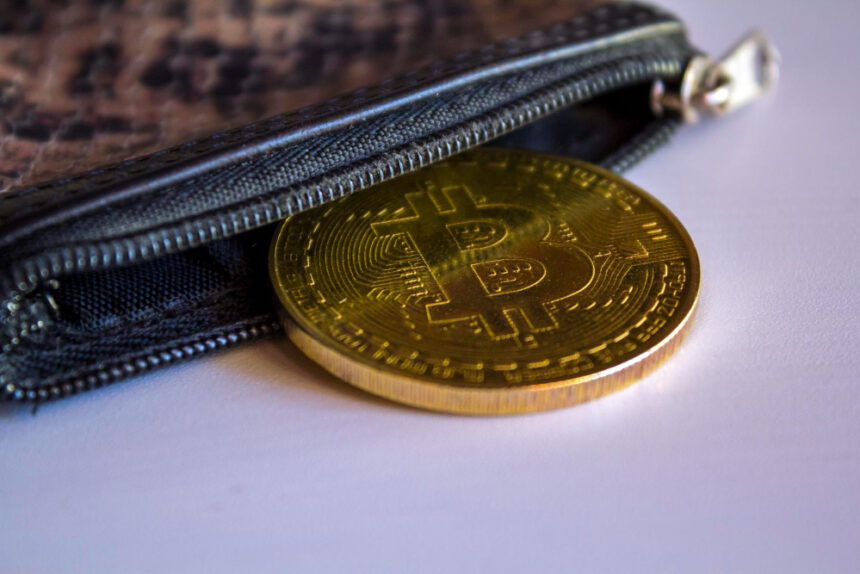Cryptocurrency has revolutionized the financial landscape, introducing a decentralized, transparent, and efficient method of transferring value globally. As interest in digital currencies like Bitcoin, Ethereum, and others continues to grow, so does the need for secure methods to store these assets. At the heart of every crypto journey is one critical tool: the cryptocurrency wallet.
Whether you’re a complete novice or someone just beginning to explore the digital currency world, understanding cryptocurrency wallets is crucial. In this article, we’ll break down everything you need to know about cryptocurrency wallets—from what they are and how they work to the different types, pros and cons, and how to keep your assets secure.
What is a Cryptocurrency Wallet?
A cryptocurrency wallet is a digital tool that allows users to store, send, and receive digital currencies like Bitcoin, Ethereum, Litecoin, and many others. But unlike traditional wallets that hold physical cash, cryptocurrency wallets don’t store your coins directly. Instead, they store the private keys—a kind of digital signature—that grant access to your cryptocurrency holdings on the blockchain.
In simpler terms, a cryptocurrency wallet is like a keychain of digital keys, allowing you to interact with blockchain networks to manage your crypto.
How Cryptocurrency Wallets Work
To understand how a cryptocurrency wallet works, it’s important to understand the two key components involved:
- Public Key: This is like your bank account number. You can share this with others so they can send you cryptocurrency.
- Private Key: This is your password. It must be kept secret at all times because anyone with access to your private key can access your funds.
When someone sends you cryptocurrency, they are essentially signing over ownership to your public address. To access or send these funds, you must use your private key. The wallet software handles all of this seamlessly behind the scenes.
Why Cryptocurrency Wallets Matter
In the world of digital currencies, your wallet is your bank. You don’t rely on a financial institution to hold your funds; instead, you are in full control of your assets. This is both empowering and risky.
Without a cryptocurrency wallet:
- You cannot send or receive digital currencies.
- You lack a secure place to store your private keys.
- You may become vulnerable to hackers or phishing scams.
Choosing the right cryptocurrency wallet is as important as choosing a reliable bank account or brokerage platform in the traditional financial system.
Types of Cryptocurrency Wallets
There are two main categories of cryptocurrency wallets: hot wallets and cold wallets. Each has its own advantages and disadvantages, depending on your needs and level of experience.
1. Hot Wallets
Hot wallets are connected to the internet. They are generally more convenient but are also more vulnerable to online threats like hacking or malware.
Examples of Hot Wallets:
- Desktop Wallets: Installed on your PC or laptop. Examples include Electrum and Exodus.
- Mobile Wallets: Apps for smartphones. Examples include Trust Wallet and Coinbase Wallet.
- Web Wallets: Browser-based wallets. Examples include MetaMask and Blockchain.com.
Pros of Hot Wallets:
- Easy to set up and use.
- Ideal for frequent trading or transactions.
- Access from multiple devices.
Cons of Hot Wallets:
- Vulnerable to online threats.
- Relies on the security of your device.
- Less secure for long-term storage.
2. Cold Wallets
Cold wallets are not connected to the internet, which makes them much more secure. These are preferred for storing large amounts of cryptocurrency over a long period.
Examples of Cold Wallets:
- Hardware Wallets: Physical devices like Ledger Nano S or Trezor.
- Paper Wallets: Physical printout of your keys or QR codes.
Pros of Cold Wallets:
- Immune to online hacking attempts.
- Excellent for long-term storage.
- High level of security.
Cons of Cold Wallets:
- Less convenient for everyday use.
- Can be lost or damaged physically.
- Requires careful handling.
Choosing the Right Cryptocurrency Wallet
Selecting the best cryptocurrency wallet depends on several factors:
1. Frequency of Use
If you’re an active trader or make frequent transactions, a hot wallet is likely more suitable.
2. Security Requirements
For long-term investors or those holding significant amounts of crypto, cold wallets offer superior security.
3. Supported Coins
Not all wallets support every cryptocurrency. Make sure your chosen wallet is compatible with the digital assets you hold.
4. User Experience
For beginners, intuitive interfaces are essential. Look for wallets with a simple user interface and helpful support documentation.
Top Cryptocurrency Wallets in 2025
Let’s take a look at some of the top-rated cryptocurrency wallets currently available, both hot and cold:
| Wallet Name | Type | Supported Coins | Best For |
|---|---|---|---|
| Ledger Nano X | Hardware | 5,500+ | Long-term security |
| Trezor Model T | Hardware | 1,600+ | Secure storage |
| MetaMask | Web/Mobile | Ethereum & ERC-20 | DeFi and NFTs |
| Trust Wallet | Mobile | 70+ blockchains | All-in-one solution |
| Coinbase Wallet | Mobile | 100+ | Beginners |
| Exodus | Desktop/Mobile | 250+ | User-friendly design |
Setting Up a Cryptocurrency Wallet
Getting started with a cryptocurrency wallet is easier than many people think. Here’s a step-by-step guide to setting up a basic hot wallet:
Step 1: Choose Your Wallet
Select a wallet that suits your needs—mobile, desktop, hardware, or web-based.
Step 2: Download and Install
For software wallets, download from the official website or app store to avoid phishing attempts.
Step 3: Backup Your Wallet
Write down your seed phrase or recovery phrase and store it in a secure, offline location. This phrase can recover your funds if your device is lost or damaged.
Step 4: Fund Your Wallet
Transfer cryptocurrency to your public address to start using your wallet.
Security Tips for Cryptocurrency Wallet Users
Even the most secure wallets can be compromised if not handled properly. Here are essential tips to keep your cryptocurrency wallet safe:
- Use Two-Factor Authentication (2FA): Always enable 2FA where possible.
- Avoid Public Wi-Fi: Public networks are often unsafe.
- Keep Software Updated: Wallets and devices must be kept current.
- Use Hardware Wallets for Large Sums: Store most of your holdings offline.
- Beware of Phishing Scams: Only interact with official websites or verified platforms.
- Don’t Share Your Private Key: No one should ever need this—even customer support.
What Happens if You Lose Access to Your Wallet?
Losing access to your cryptocurrency wallet can be catastrophic, especially if you haven’t backed it up properly. Here’s what can happen:
- If you lose your private key or recovery phrase and don’t have a backup, you will lose access to your funds permanently.
- If your device is stolen but you have the recovery phrase, you can restore your wallet on a new device.
That’s why safeguarding your backup phrase is one of the most critical aspects of using a cryptocurrency wallet.
Cryptocurrency Wallets and Taxes
Most countries now require individuals to report crypto transactions for tax purposes. Your wallet can help you keep track of your:
- Incoming and outgoing transactions
- Capital gains or losses
- Transaction history for audit purposes
Some advanced wallets even integrate with tax software or provide CSV exports for accounting.
The Future of Cryptocurrency Wallets
As blockchain technology evolves, so do wallets. Here are a few trends shaping the future of cryptocurrency wallets:
1. Multi-Chain and Cross-Chain Support
Future wallets will likely support multiple blockchains seamlessly, allowing users to manage all digital assets from one interface.
2. Integration with Web3 and DeFi
Wallets are becoming portals to decentralized apps (DApps), enabling users to lend, borrow, stake, and trade directly from the wallet.
3. Biometric Security
Expect to see more wallets incorporating facial recognition or fingerprint scanning to improve user security.
4. Institutional Wallets
As businesses adopt crypto, enterprise-grade wallets with multisig features and compliance tools are gaining traction.
Common Myths About Cryptocurrency Wallets
Let’s debunk a few popular misconceptions:
Myth 1: Wallets Store Coins
Fact: They store private keys, not the actual coins, which live on the blockchain.
Myth 2: Wallets Are Only for Tech Experts
Fact: Many wallets today are user-friendly and designed for beginners.
Myth 3: You Don’t Need a Wallet If You Use an Exchange
Fact: Keeping coins on exchanges is risky due to potential hacks. You should always move your funds to a personal wallet.
Final Thoughts: Take Control of Your Digital Wealth
As cryptocurrencies become more mainstream, understanding how to securely store and manage your digital assets is essential. A cryptocurrency wallet is your gateway to the world of blockchain and digital finance. Whether you’re a casual investor or a serious trader, your wallet determines how safely and efficiently you interact with crypto markets.
Invest the time to research and choose the right wallet, back it up securely, and follow best practices. After all, in the world of cryptocurrency, you are your own bank—so be a smart and secure one.

